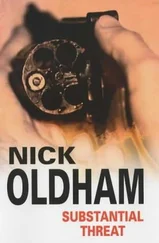The other man, Pechorin, could not have been more different. He was a squat Ukrainian, and sullen, as if whatever place he went offended him on arrival. He was not so much a boxer as a hitter. After a few tentative engagements he could be guaranteed to lose his temper, and his hallmark combination would come out: double jab, cross, hook hook hook and on and on until the hooks became haymakers, and he could never understand how everyone slipped the last punch and got behind his guard. The Sergeant did not often box with Pechorin, but when it was inevitable he adopted a sort of mirror posture, never letting the man land anything on him, never provoking him, until the referee declared a winner on points. There was no point asking him when he would leave, because he was here on deployment. He would leave when he was ordered to, and he cared nothing one way or the other. In any case, Pechorin was not comfortable in the whirlpool with other men’s bodies on display, so he was never there.
Shola’s café was where the Sergeant had first encountered the boy. It had been the second week after his official investiture as Brevet-Consul, and his second visit to the place after meeting its owner in the ring. His arrival this time was the intentional sort of accident. He had been ambling along the shady streets on what was either a reconnaissance or a stroll, thinking he just might pop in but then again perhaps he wouldn’t, but as he approached to within a few steps of the door and considered walking on by, Mancreu performed one of its seasonal lurches and the rain started: explosive golf balls of water, gentle at first but growing rapidly more weighty and numerous. He glanced up, saw no relief, and dashed inside.
He was greeted by a burst of mirth — a drenched foreigner is always hilarious — and ushered in. Shola himself had been absent that day, but the barman, Pero, had known him for a friend of the boss and bawled for the good kettle. The result had been a pungent caravan tea, bitter and startlingly good. Better, in fact, than any he could remember drinking pretty much anywhere, although some part of him wondered if that might not have more to do with his memory and his recent history than the tea itself.
He lounged and exhaled, and felt some small part of himself relax, like the moment when the elastic band on a child’s toy plane, wound and wound until the twisting redoubles upon itself and then let go to power the propeller, spasms once and releases that second layer of knots. He stretched backwards over his chair, and when he looked down again he noticed vaguely a boy, also drinking tea, sitting in the corner with a comic book. Beside the boy was a big, blocky mobile telephone in grey plastic. It was so old it had a visible aerial.
The Sergeant drank his first pot dry very quickly and ordered another, and some bread and butter. These also turned out to be excellent — the butter was a pale vanilla froth which spread onto the sourdough and lifted it to something like the level of the tea.
By the time he had finished the bread, the rain was worse, battering on the corrugated-iron roof; rain in the tropical style, by the gallon, with the force of a fist. It was loud, but not unpleasant because Shola had padded the interior of the roof with bags of sheep’s wool. The noise was muffled rather than entirely blocked, but the wool meant sitting in the place during a storm was like listening to a troop of mounted horse on the road rather than being inside a giant metal drum. More customers were coming in, cursing and laughing, water streaming from their faces and sloshing from their shoes.
The Sergeant smiled an occasional greeting when someone made eye contact with him, drank his tea, and listened. Like the boy, he had a mobile telephone, a bulky, simple thing with large buttons and a big battery which went on for days. It was next to his tea. At some point — he wasn’t sure when, the action was automatic — he had inserted the battery and switched the device on. He had to do this because except in emergencies he did not travel in-country with a live phone. It was a residual proscription, pointless here, where anyone who was looking for him could just come to the house, but it went against the grain to reveal his location while he was on the move. He restricted the phone’s sign-ins to those places he was known to go and otherwise kept it inert, so that an enemy seeking him in transit must identify him by sight and in person, and risk a comparable exposure.
He took another sip of tea and idly, with his left hand, traced the outline of a deep gouge in the tabletop. It had probably been made with the sight of a handgun. An idiotic thing to do, a lousy use for a gun and bad practice for a soldier, but of course any number of people who had sat in this place with handguns had probably not been soldiers, and many of them — soldiers or not — had undoubtedly been idiots. You couldn’t look at Mancreu and imagine that the island hadn’t seen more than its fair share.
The rain stopped, and a few minutes later the Sergeant came to the end of his tea and of his introspection, and at the same time the boy apparently concluded that he had read and reread his comic book as much as he wanted to. The Sergeant reached for his phone to remove the battery, and was aware of an immediate sharpening of interest and a searchlight intensity in the air.
He kept his hands very much on the table, and softened his shoulders. He didn’t want anyone to make any mistakes about how relaxed he was, how calm, and how he did not intend to reach for his side arm. He wondered who had come in, and how they had done it without making any noise, without the light from the door falling across him. Perhaps they had come from inside the bar, from the private rooms.
He looked up and found the boy watching him, eyes shadowed, body almost entirely wrapped in the dark of his corner table. The bodyguard’s table, the Sergeant called it in his mind, a table he would not have chosen to sit at because he didn’t want to be known as a man who kept his eye on the door. It was enough that he was a soldier. He didn’t want the people of Beauville to think of him reckoning each drinker, making sure he could kill them if he had to. Though of course some part of him did all those things, in the back of his mind, registered newcomers and regulars, weighed them and categorised them, so that if it ever came to it — whatever ‘it’ was — he would know whether to stand or flee, how many could he take down, what would it cost him, and how bad would it get.
Very bad, was the answer, always. One way or another: very bad.
The Sergeant kept his eyes on the boy — not aggressive, just interested — and the boy looked back at him in exactly the same way, reassessing, cataloguing, considering. Why? Where did this stark, sudden appraisal come from? The boy was part of the landscape, a customer. The Sergeant had a vague notion he had glimpsed him before: getting out of a coracle on the waterfront; running errands and bringing messages; sitting and reading. Why was he allowing himself to be visible, exposing himself by this close, intrusive scrutiny? The Sergeant had pegged him as smart and jittery and possibly traumatised. So. What now?
The boy’s body was very still, a mirror of his own demonstrative calm, and the Sergeant, changing the focus of his attention without changing the position of his eyes, followed the line of one scrawny shoulder down to the hands. Then after a moment he snorted approvingly. He relaxed, and felt as much as saw the boy doing the same. For all their physical differences, in this moment they were identical: backs straight, heads slightly forward as they prepared to push themselves to their feet. And each of them was holding his phone’s battery in preparation for putting it away, in a separate pocket. A twin paranoia. A wise man does not catalogue his road home.
Читать дальше
Конец ознакомительного отрывка
Купить книгу











